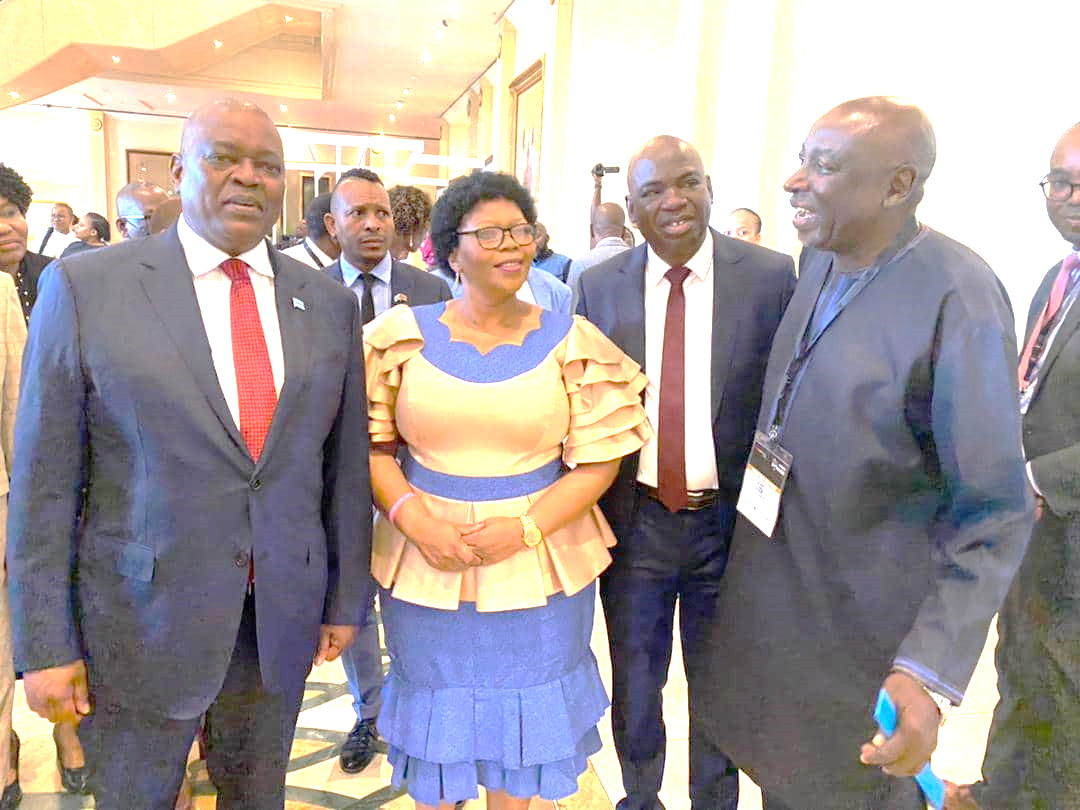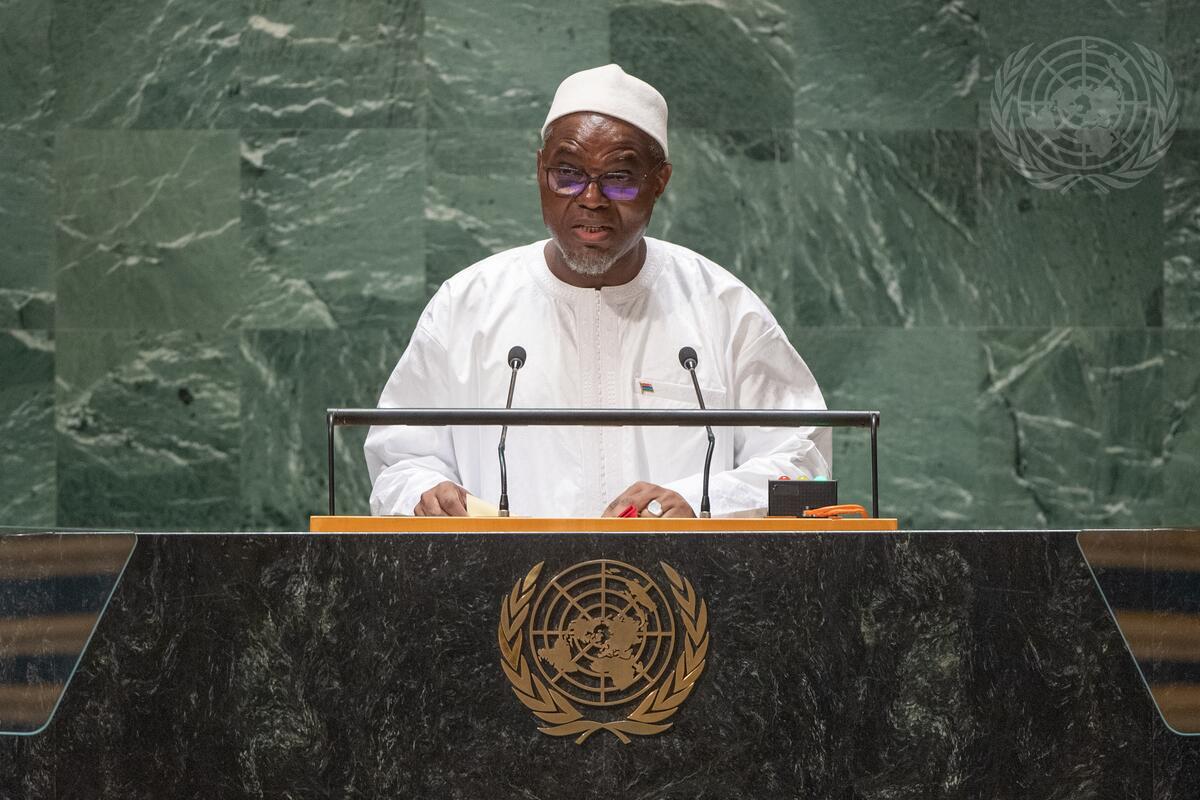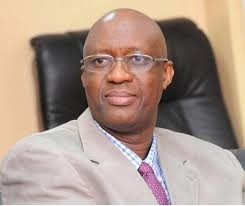By Kebbe Ansu Manneh
Sheikh Tijan Nyang, Secretary-General of Gambia Tourism Federation (GTF) who is currently attending the 5th African Tourism Leadership Forum (ATLF) and Awards in Gaborone from 24-26th October 2022, has called on African Tourism Stakeholders to redouble their efforts in attracting tourists to the continent.
Mr Nyang who is also Head of School at the Institute of Travel and Tourism of the Gambia (ITToG) made the calls during his meeting with the President of Botswana, Dr Mokgweetsi Eric Keabetswe Masisi on the sidelines of the ATLF
He observed that African tourism still has a long way to go, especially with the impacts of COVID-19 and the continent’s heavy dependence on loans and importation of virtually everything making it difficult “to link tourism to our local economies,”
He argued that Africa’s tourism generally remains uncompetitive on several fronts including the region’s shares of International tourist arrivals.
He made these revelations among others in Gaborone, where he said the continent will continue to be at the losing end if it fails to unite its efforts in attracting tourists to the continent.
“The region’s share of international tourism receipts has remained the lowest, accounting for roughly 5% of global international arrivals and about 3% of global tourism receipts. More so, Africa’s tourism seems to attract the lowest spenders with an average spending per visitor of USD600 against a global average of USD 990,” SG Nyang disclosed at the 5th African Tourism Leadership Forum (ATLF).
He added: “In addition, despite the region being the world’s second-largest and second-most-populous continent, with a market of 1.2 billion people having a growing increasing disposable income. Africa’s tourism has largely ignored the regional market with much of the industry traditionally targeting international tourists from outside the region, in particular, Europe and North America. Only 4 out of 10 international tourists to Africa originates from Africa in 2010–2013, a far cry compared to 4 out 5 global averages.”
According to him, with the prevailing statistics, the need for a strategic response to Africa’s underperforming and uncompetitive tourism sector both within the domestic market and foreign markets becomes necessary.
He stated that this requires tackling the challenges currently limiting the growth and development of Africa’s tourism industry relating to destination and product development, promotion and marketing, accessibility, investment in tourism infrastructure, safety and security, natural and cultural heritage, and lack of a harmonized tourism framework and institutions, among others.
However, the Tourism Doyen said all hope is not lost if the continent has the right regional policies and strategies in place and, makes sure they are implemented.
“As of now, during the COVID-19 pandemic years Africa’s tourist arrivals start to improve: As of May 2021, the number of tourists that arrived in Africa from overseas added up to around 1.04 million, which was significantly higher than the 533,000 international tourists who arrived in the continent in May 2020. “In 2020, the region recorded its highest monthly count of international tourists in January, at over 5.3 million,” SG Nyang revealed.
He added: “This was slightly higher than the number registered in the same period in 2019. The specific inclusion of tourism in the 2030 SDG Agenda is an acknowledgment of the global significance of the sector; the development of tourism per se is not an end goal in itself – all efforts should concentrate on the transformation of tourism to be a tool for sustainable development.”
He observed that if tourism is to be developed, it needs to seek a widespread and fair distribution of economic and social benefits throughout the recipient communities, including improving local prosperity, quality of life, and social equity, arguing that tourism should be a positive and beneficial experience for travelers and hosts alike to act as a force for mutual understanding and respect.
Nyang continued to observe that Africa wants tourism that ensures responsible resource management, tourism that addresses the negative impacts and respects environmental and cultural capacities.
“All three aspects, (known as the triple bottom lines) are important: economic, socio-cultural, and environmental issues. Countries in Africa must market their destinations for what makes them unique: the pristine environment that gives us majestic rivers, the flora and fauna in these countries, and so on,” ITToG Head of School highlighted at the Forum.
He added: “To get to this level we recommend all stakeholders take responsibility for making tourism sustainable. We, therefore, call for responsible tourism as an approach to African tourism.”
He finally highlighted a series of tourism organisations that were formed through stakeholders’ efforts but could not go far due to a lack of resources and support from African Governments,
The forum also accords the Secretary General of GTF the opportunity to meet with the President of Botswana, Dr Mokgweetsi Eric Keabetswe Masisi, the Minister of Tourism of Philadelphia, Nani Kereng, and Kwakye Donkor CEO of African partners at the forum were they also discussed on the way forward for the development of tourism in the continent through collaborations, knowledge, and skills sharing as well as joint marketing initiatives.




